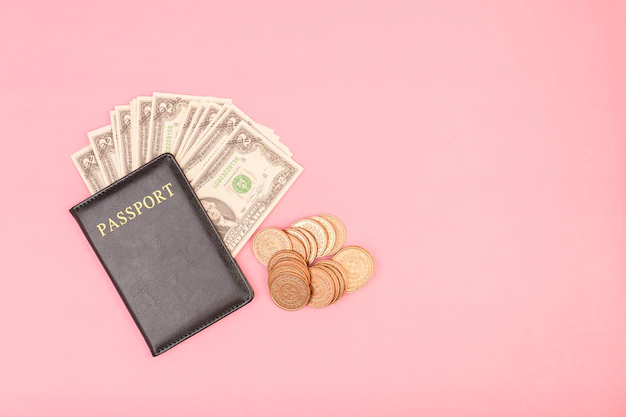These days it feels as though travel gets more and more expensive as time goes on. Even a nearby weekend getaway doesn’t seem logistically possible for many people due to soaring travel, food, and lodging expenses. However, with some out-of-the-box planning, your dreams of taking a vacation are not unworkable. Read on for some advice on how to save more money so you can go on these excursions without worry.
1. Take Advantage of Card Bonuses
This first tip may prove useful without needing to change any of your current spending habits. Look into different payment cards (credit or debit) that can net you bonus rewards for purchases you make. Credit cards tend to have rewards systems that may offer cashback, rebates, or if you qualify, even direct travel benefits. For example, certain cards offer airline miles or hotel discounts to cut down on your flight and accommodation costs.
Although you’re far less likely to find a debit card with rewards, those with benefits do exist in the market. Some offer small bonuses like round-up savings, small discounts, or additional features.
2. Plan Your Trip Early
Make sure you begin planning your travel at least a few months in advance. Booking closer to your trip will cost you more money upfront due to the lack of notice and higher demand. Plus, this leaves you plenty of room for the most important part — budgeting in a gradual savings plan! The farther away your trip is, the longer you have to build up the funds you’ll need for it.
Even without a concrete idea of where or when you’re traveling, a savings plan is the best course of action. Just continue putting away money until an opportunity arises and you won’t need to wait as long to get started.
3. Create a Budget for Spontaneous Purchases
It’s easy to forget to leave room for the fun stuff (going out, self-care purchases, etc.) when making a budget. But avoiding the things you enjoy entirely may not feel rewarding enough to ensure you stick with your savings plan. That’s why, in conjunction with your savings goals, it’s important to give yourself space in your budget for spontaneous purchases. The last thing you want is to feel restricted in the present or it’ll be harder to maintain your plan.
You don’t have to put aside too much, only what you truly can spare according to your judgment. For instance, just $50 a month leaves you room for the occasional on-the-go breakfast pastry or thrift knick-knack.
4. Reevaluate Your Subscriptions
The subscription-based business model is more affordable for short-term needs (due to lower upfront costs) than purchasing something outright. Still, it can pose a problem to your finances if you’re forgetful or overestimate your need for the product. It’s one thing to subscribe to a streaming service for entertainment, but a monthly cheese box may not be sustainable. Many people simply forget to cancel old monthly payments, so taking the time to do so can save a lot.
Remember, of course, that what you consider essential or enjoyable is also an important factor in these decisions. If you have nonessential subscriptions that you love and can fit them into your budget, then treat yourself to them.
5. Structure Your Media Consumption
Streaming services in particular are hard to avoid because most people consume visual media in some form. Cord-cutting became popular in the first place because these services were more affordable and centralized than traditional television. This is no longer true due to raised demand — which brought the number of offerings, and the cost, full circle. You can avoid being bogged down by planning to subscribe to (and watch content on) only one service each month.
For example, you could subscribe to Netflix for the month and binge all of its shows of interest to you. Then you can do the same for Hulu the next month or even continue for another month if you need. The latter is a good solution if you’re watching a show that is released weekly.
6. Try to Cook More Often
Cooking at home is the best way to maximize your income regarding food. It’s also much healthier than eating out and can be a mindful, meditative, and fun activity in itself. What’s more, making good, fancy meals doesn’t require expensive ingredients — just the practice to use them creatively. Learning how to use spices can elevate any dish to restaurant-level and bring immense satisfaction to your nightly routine.
You’ll also find ways to make the most out of affordable ingredients as you get more accustomed to them. Nothing is more satisfying (and lighter on the wallet) than a well-seasoned pot of rice and beans or bolognese.
Being able to afford your next vacation is not a pipedream as long as you give yourself time to save. Keep your expectations realistic, but also don’t hesitate to fantasize a little. The ideal trip is not as out of reach as you think. And with a good budget, you can bring it much closer to fruition.




